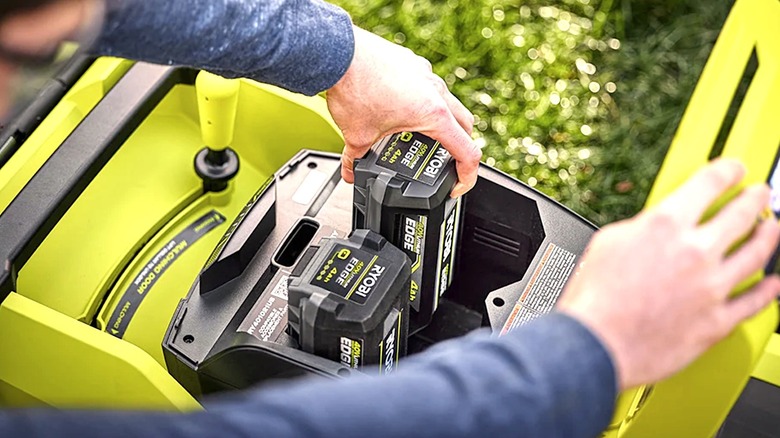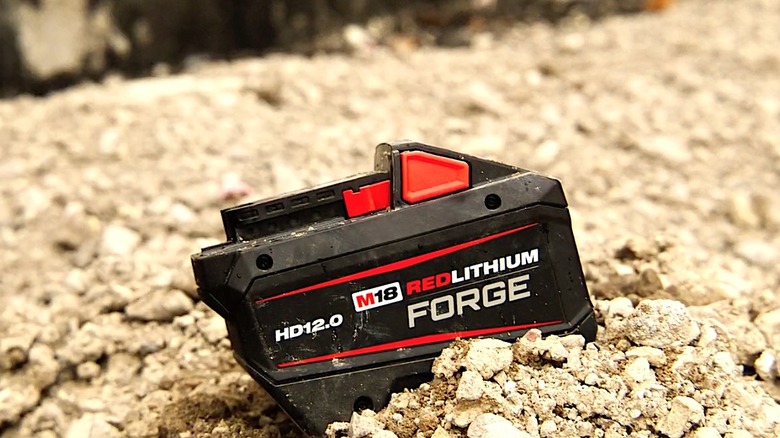Should You Remove Batteries From Power Tools When Not In Use?
With most of the world's major power tool manufacturers making a hard push toward battery-powered devices, it's a safe bet that even the low-key DIYers in the world have at least one such tool tucked away in their utility closet or garage. These days, it's even likelier that there are several battery-powered devices being stored away on your property, and it's not hard to wonder whether they are being stored correctly.
Yes, there is a right way and a wrong way to store those devices when not in use. That is important because, more often than not, those power tools and yard maintenance devices are sitting around in storage far more than they are being used. While there are a few things to consider before putting tools away, it is generally believed that removing the device's battery is a good way to keep it safe and functional. Part of the reasoning is that leaving it connected to the tool can drain and eventually damage it. Removing the battery will avoid this and, in turn, may extend its lifespan and ensure proper performance.
The practice of removing a battery pack when a powered device is not being used has been backed by the likes of the Power Tool Institute. If that's not enough of a selling point, you'll likely also find that the makers of such devices — including Ryobi — recommend the practice in their manuals.
How to clean and store batteries when they are not in use
Most manufacturers also recommend that you not simply put a battery away the moment you're done using it. Rather, many encourage owners to ensure the battery is charged between 40% and 60% prior to storage, though a full charge may be the ideal if it's being stowed away for more than six months. It should go without saying that, after you charge the battery, you also need to remove it from the charging station before storage, as the same drainage concerns are in play as with leaving it connected to the device.
Once you've disconnected the battery from the device and charger, there are still things to consider before putting it away, even for the span of a few days. Primarily, it is recommended that you store your battery in a cool, dry location, as excessive heat and moisture can severely damage it. That means you should probably not store your battery packs in the garage right next to the device, unless, of course, you've insulated your garage door or have installed a climate-control system. If possible, you should also consider storing the battery in some sort of protective case.
Likewise, it can also be wise to clean your rechargeable batteries after every use. To do so, use a clean, dry cloth to wipe down the exterior shell, as well as the connecting plates. Doing the same where the battery connects to its device is also advisable.

